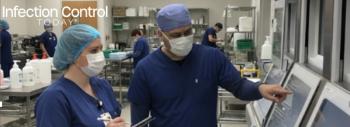
Instructions for Use: A Q&A with Chuck Hughes
Q: What are the most common challenges associated with manufacturers' instructions for use (IFUs) that you have heard from sterile processing professionals?
A: Having visited thousands of healthcare facilities in my career, I would have to say that the most common challenges associated with manufacturers IFUs are the special resources needed for SPD to comply with reprocessing "complex" medical devices. The majority of healthcare facilities are designed to quickly and efficiently reprocess reusable medical devices utilizing standardized cleaning, inspection, packaging and sterilization procedures. Therefore, not having the proper water quality is a challenge, as is not having the proper detergent, the proper ultrasonic equipment or settings and the proper sterilization methods or settings. Of course, when I say "proper", I mean what has been "validated" in each medical device manufacturer's written IFU. These challenges are compounded by the fact that some devices may look similar in design or function, but they can have vast differences in cleaning procedures and/or sterilization parameters as detailed in their IFUs. Having some, most, but not all IFUs is another common challenge faced by all healthcare facilities I have visited during my 30-plus-year career.
Q: Do you identify additional challenges above and beyond what you hear from SPD personnel?
A: Yes. While the majority of healthcare facilities I've visited have worked hard to have access to IFUs, there remains the challenge of not having enough time to routinely access them and/or comply with their varied procedures. There is the "need it now" pressure from the OR that makes this challenge particularly difficult for many SPDs I've observed. In addition, poor facility design comes into play with many older healthcare facilities. This creates a daily challenge for compliance with "best practices" starting with proper transport of contaminated devices and ending with proper storage of sterile devices.
Q: What are some real-world examples to highlight the difficulties that IFU compliance present?
A: Let's start with it has always been common practice at many healthcare facilities to purchase or borrow reusable medical devices without the input of sterile processing professionals. This best practice "violation" often leads to situations where SPD personnel do not have the specialized training or resources needed to fully comply with IFUs. Another example, is when robotic instruments first came out. I noticed many healthcare facilities scrambling to purchase an ultrasonic cleaner which was validated in the manufacturer's IFU and emphasized during the manufacturer's in-service training. However, so many were surprised when I pointed out how many of their existing "non-robotic" devices, also required ultrasonic cleaning in their IFUs. In fact, some required two ultrasonic cleanings prior to rinsing and placement into a mechanical washer. Without this critical information, I saw many healthcare facilities reprocessing complex devices, but not reprocessing them properly. As reported in the media numerous times in recent years, this can lead to use of non-sterile devices which is like having a "loaded gun" in the OR.
Q: What specifically can manufacturers do to improve their IFUs?
A: There are many things manufacturers can and should do to ensure their devices are properly reprocessed. First, design their new devices in a way that routine reprocessing procedures can be validated. Also, they should consider redesigning their existing devices to comply with this requirement as well. Manufacturers should train their engineers, scientists and all other employees on the importance of the "ease of reprocessing" for medical devices. And whenever this is not possible, ensure that all healthcare facilities who purchase or borrow their devices receive proper in-service training and have all the necessary resources to properly reprocess their devices. Manufacturers must remember that SPD personnel are under pressure to deliver reusable medical devices sterile, on time and complete. Those manufacturers who provide products and/or services to help facilitate this need, will be greatly rewarded.
Q: What specifically can hospitals do to assist their SPD personnel to carry out the IFUs?
A: Several recommendations come to mind. First, healthcare facilities that reprocess medical devices must ensure that complete and up to date IFUs are made available in all areas where they are needed, i.e. cleaning IFUs in the Decontamination areas, inspection and sterilization IFUs in the prep-and-pack areas. Secondly, healthcare facilities must provide SPD personnel with enough time to reprocess complex IFUs. Reprocessing time requirements can be gauged with a review of each IFU. Getting more time can be accomplished by having more instruments available and/or not scheduling back to back cases. Again, this relates to complex devices, not routine devices. Lastly, I feel strongly that healthcare facilities who routinely reprocess complex devices must hire an SPD educator. The SPD educator's goal and primary responsibility is to ensure that all reusable medical devices are properly reprocessed. Not some of the time, not most of the time, but all the time! This is accomplished by insisting on proper facility design, proper reprocessing resources and detailed training of all new employees, detailed training of all employees when new devices are introduced or changes made to existing devices, and direct observation routinely when reprocessing complex devices.
Newsletter
Stay prepared and protected with Infection Control Today's newsletter, delivering essential updates, best practices, and expert insights for infection preventionists.




